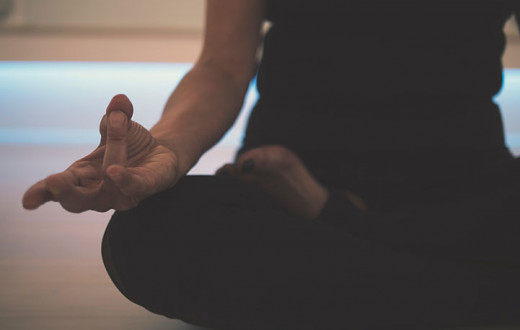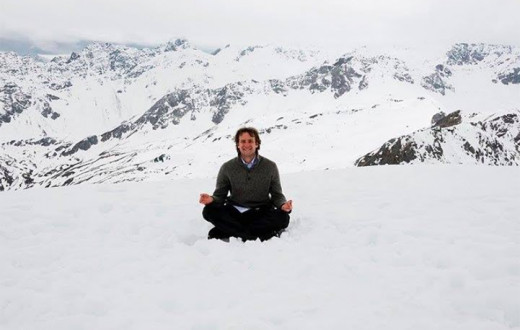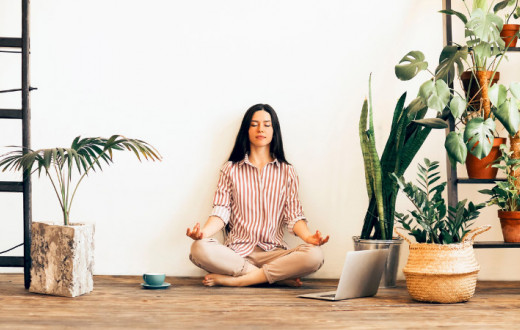
Sleep is an important source of energy for the body and mind, offering our systems the rest and rejuvenation we need for long-term health. Have you noticed that when you are sleep-deprived you feel grouchy, irritable, and (let’s be honest) a bit crazy?
The quality of our sleep impacts everything from our hormones to our emotions and energy levels. Getting deep sleep every night resets and restores our energy levels and is essential for our overall sense of well-being. Insufficient sleep at night can lead to awful mornings and daytime fatigue resulting in unproductive days.
If you have trouble falling asleep or waking up in the morning, it may be time to evaluate your sleep hygiene to see how your habits may be preventing you from getting the quality sleep you need.
Let’s look into what sleep hygiene is and explore some of the changes you can make to your daytime and nighttime routines to help improve your sleep.
What is sleep hygiene?
According to the American Sleep Association, sleep hygiene is defined as behavioral interventions that one can do to help promote good sleep. These science-backed, healthy habits and practices done during the day and before bedtime help create the ideal conditions for healthy sleep. Good sleep hygiene can mean the difference between a restful night and a restless one.
Why maintaining sleep hygiene is important for restful sleep
Adequate sleep is essential for our everyday functioning. Better sleep can lower stress and improve memory, mental clarity, focus, immune system function, and even reduce the risk of Alzheimer’s. Though healthy sleep has more to do with the quality of our rest, quantity also is important. 6 to 8 hours of sound sleep is essential for everyone. If our sleep patterns are disturbed and we get less than this, our memory, productivity and overall sense of wellbeing are negatively impacted.
According to the Sleep Foundation, sleep hygiene encompasses both environment and habits, and it can pave the way for higher-quality sleep and better overall health.
13 steps to improve sleep hygiene
A great deal of research has been done in recent years exploring the importance of proper sleep hygiene and its crucial role in having a good night's sleep. Below are some simple sleep hygiene practices that can help you have deeper, more restful sleep every night.
A. Stick to a regular sleep schedule
Follow your body’s circadian rhythm and keep a consistent sleep schedule. Go to bed at the same time each night, ideally by 10 pm, and get up at the same time each morning, ideally by 6 am. This simple tip can do wonders for the quality of your sleep.
B. Maintain a healthy daytime routine
Include regular exercise such as walking or yoga, as well as 20 minutes of meditation in your daily routine. If your body and mind are relaxed and at ease, getting to sleep will be easier.
Eat healthy foods, and drink 6 to 8 glasses of water each day. Have a light dinner, and finish it by 8 pm at the latest.
Avoid naps and any caffeinated drinks after 3 or 4 pm.
C. Follow a proper bedtime routine
Limit the use of blue-light devices like cell phones and computers in the last hour before bed. Say no to YouTube, social media, and Netflix at night. Unplug from electronic devices. The blue light from these devices can keep your nervous system and brain alert at night and disrupt sleep patterns.
Learn to unwind. If you like, you can play some soft, relaxing instrumental music in the evenings to go into relaxation mode, or you can use sleep meditation to relax. Here is our complete sleep meditation guide to help relieve sleep problems.
Drink some warm milk with turmeric before bedtime.
Have a warm bath and wear comfortable, breathable pajamas to bed.
Write a gratitude journal, or say a simple prayer before bed. You can also try some relaxation exercises like whole-body scanning.
D. Create an environment that promotes good sleep
Keep your bed neat, clean, and cozy. It’s also important to have a comfortable mattress, pillows, and bed linens. The more comfortable you are, the easier it will be to fall asleep and stay asleep.
Find the optimal temperature in your room for sleeping. For most people, a bedroom temperature between 60°F and 67°F (15.6°C-19.4°C) works best for sleeping. Allow some fresh air to circulate in your room if you can.
Keep your bedroom as dark as possible using curtains or an eye mask as needed.
Minimize sound in your bedroom (other than white noise). If needed, you can also use earplugs.
Brush your teeth for dental hygiene, meditate for mental and sleep hygiene
According to the Sleep Foundation, “If insomnia is at the root of your sleepless nights, it may be worth trying meditation. Deep relaxation techniques have been shown to increase sleep time, improve sleep quality, and make it easier to fall (and stay) asleep.”
Independent research on SKY Breath Meditation indicates that SKY practitioners spent 13% of their total sleep time in a deeper restful SWS state (stages 3 & 4 sleep), whereas the control group spent only 4% in deep sleep.
Want to learn more about SKY?
If you would like to improve your sleep hygiene, including SKY in your daily routine is highly recommended. Join us for a free introduction session. A SKY teacher will guide you through a meditation session, teach you a powerful breathing technique, and answer any questions you may have about SKY.
Click the image below to save your spot!






























